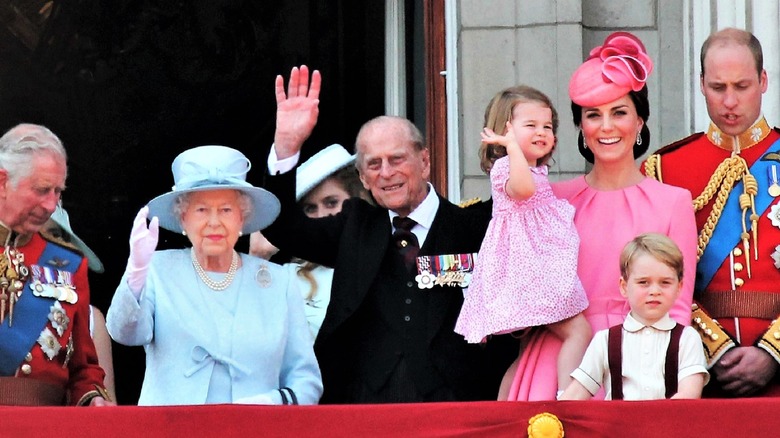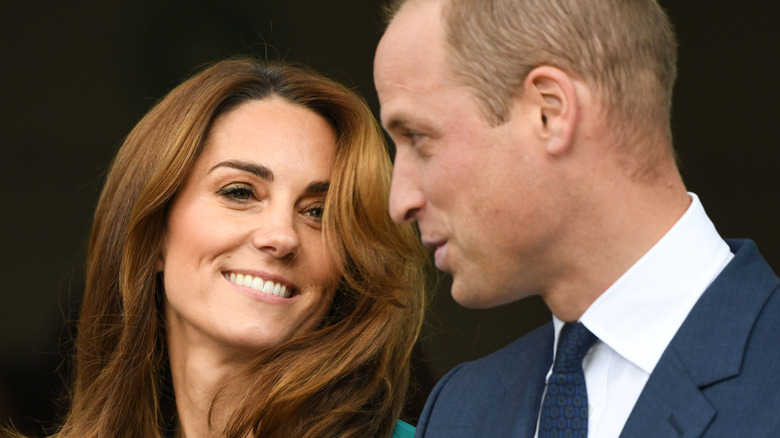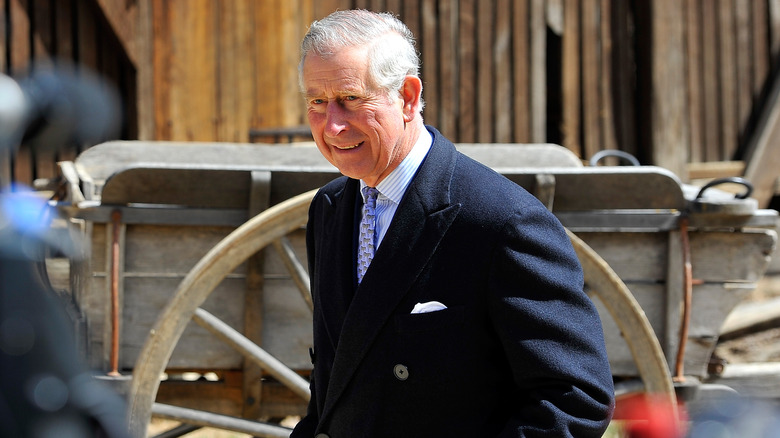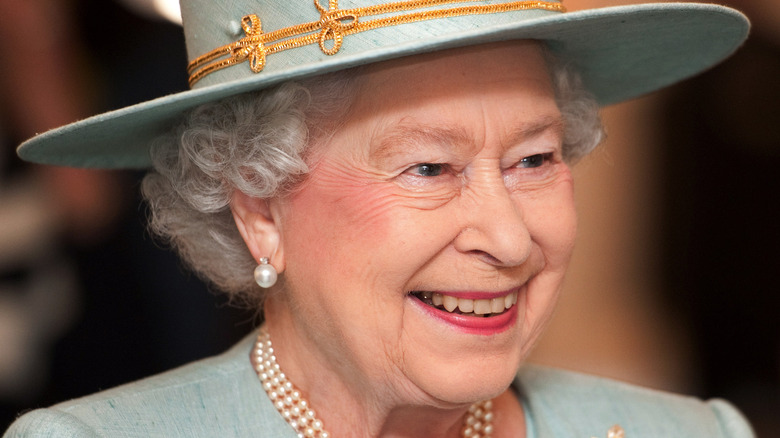Why The Royals Aren't Served Spicy Or Exotic Foods
When you think of the royal family, it's only natural to think that they're probably able to feast on a variety of foods from all over the world, including dishes that the rest of us commoners would be hard-pressed to find. But guess what — the reality is quite different. Queen Elizabeth had many rules for the royal family as far as dining was concerned, and she was quite strict about making sure that they were enforced.
To begin with, if you're a part of the royal family, foods that contain garlic or a lot of onions are totally off-limits. If onions are used sparingly in a dish then the royals may be fine with it, but for the queen, there was no exception with garlic. Former royal chef John Higgins once told the National Post, "The royal family are wonderful people, but they're missing out ... because at Buckingham Palace, you don't cook with garlic. I suppose, in case you get the royal burp."
Likewise, Higgins reported very strict meal preparation standards (even for the queen's dogs) when working for the royal family. Additionally, the royal family tends to avoid spicy foods and seafood for health reasons and to maintain their public image.
Shellfish is off the menu except sparingly
Both shellfish and raw fish are on the list of foods that the royals tend to avoid. The reason is simple — there's a higher chance of developing a food-borne illness from raw seafood. According to the Centers for Disease Control and Prevention, seafood carries the risk of food poisoning, which can cause vomiting, cramps, and diarrhea. These are unpleasant symptoms to deal with on any occasion, but especially while trying to conduct royal duties and travels.
That's not to say, however, that the royal family doesn't occasionally indulge in these dishes. While touring a Japanese cultural center in London, Prince William sampled salmon sashimi and confessed that he and his wife Princess Catherine love sushi. In the 1980s, Queen Elizabeth also sampled sea cucumber during a visit to China. Meanwhile, King Charles was spotted slurping oysters at a festival in the English town of Whitstable in 2013. So it's more of a soft ban.
Food rules safeguard not only their health, but their public image
The royals may have a life of luxury, but they also have an image to maintain for the public and the ever-scrutinizing eyes of the press. This is the main reason why the royal family avoids eating anything spicy, especially when traveling. The royal family wants to avoid any gastric issues, a tricky situation to navigate while also trying to maintain that famous English stoicism in front of dignitaries and guests. A diet of familiar and even bland foods allows these affairs to run seamlessly without digestive complications or embarrassing disturbances, according to the BBC.
However, at least one food banned by the royals has nothing to do with potential tummy trouble but instead is tied to their beliefs and values. In 2008, then Prince Charles banned foie gras from being served or prepared at his residences. Now that he is king, he is planning to do the same in other royal homes and palaces as well. The rich spread, made by force-feeding geese and ducks to fatten their livers, has come under increased criticism from animal rights organizations.
Some food rules were just for Queen Elizabeth
There's no doubt that being the Queen of England had its advantages. While many of these food rules are in place to protect the health and image of the entire royal family, there are also many rules that were simply to satisfy Queen Elizabeth's particular whims and tastes.
Conscious of foods that might cause her to gain weight, she forbade dinners of pasta, potatoes, and other starchy foods except on the rarest of occasions. Even while on a trip to Italy she ordered hotel chefs to skip the pasta dishes. The queen loved fresh strawberries, but was adamant that her staff never give her strawberries grown out of season, or that were not organic. She also preferred her meat always cooked to be well done and her teatime sandwiches always served with the crusts cut off. Darren McGrady, a former chef to the queen, shared (via Bustle) that the queen was never interested in input from the royal kitchen. She disliked change and wanted her meals prepared her way.
We already know some of King Charles' food rules, such as his nightly before-dinner martini, which must always be made with equal parts gin and dry vermouth. He even brings his own martini glass with him while traveling. Now that he's taking the throne, foodies will be watching to see how he adds to or changes the royal family food rules.



